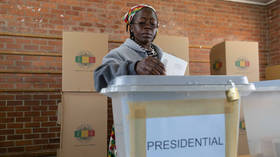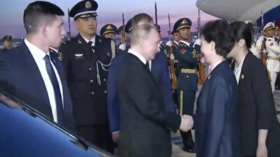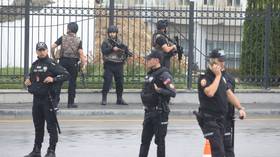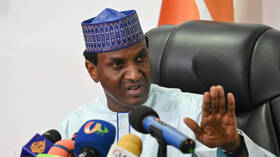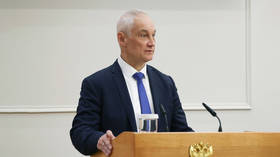US sanctions are ‘nonsense’ – Zimbabwean official
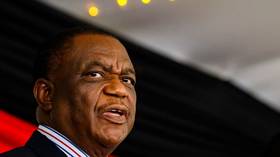
Zimbabwean Vice President Constantino Chiwenga criticized the logic behind US sanctions on his country in remarks made to a gathering in the capital of Harare on Wednesday.
October 25 has been declared Anti-Sanctions Day in the country. In addition to the event in the capital, thousands of Zimbabweans marched in different parts of the country on Wednesday to protest the sanctions imposed by Washington.
Chiwenga described the conditions set by the US for keeping sanctions on the country as “nonsense.”
“Meanwhile the United States claims it imposed and maintains sanctions on Zimbabwe as a favor to provide transition to democracy and to promote economic recovery. What kind of nonsense is that,” the vice president said.
Harare continues to clamor for the embargo placed on it in 2002 to be lifted. The vice president noted that the country has lost more than $150 billion due to the restrictions.
“Since 2001, we estimate that Zimbabwe has lost or missed over $150 billion through frozen assets, trade embargoes, export and investment restrictions from potential bilateral donor support, development loans, International Monetary Fund and World Bank balance of payment support and commercial loans,” Chiwenga stated.
Introduced under former President Robert Mugabe, who ruled Zimbabwe for four decades before being removed in 2017, the sanctions were aimed at pressuring the government to place a greater emphasis on human rights and improve the country’s democratic institutions.
However, the measures have affected critical sectors such as health, water, energy and transportation.
Meanwhile, the US accused Zimbabwe of fraud and human rights violations during the recent presidential election in August. The Zimbabwean government has called these allegations unfounded.
“Despite the sanctions that have weakened our institutions and degraded our infrastructure, Zimbabwe has religiously held free and fair general elections,” Chiwenga claimed.
